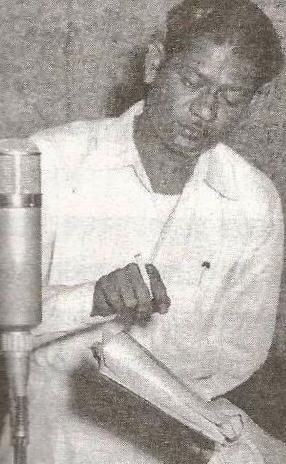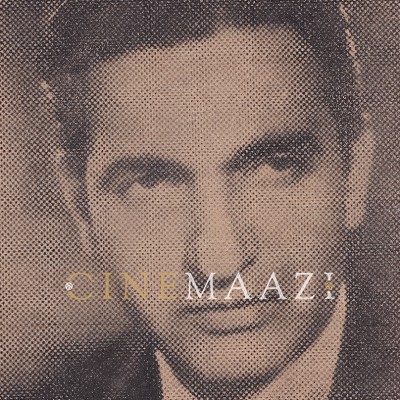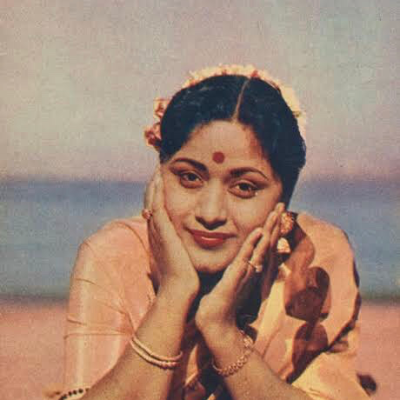Vasant Prabhu

Subscribe to read full article
This section is for paid subscribers only. Our subscription is only $37/- for one full year.
You get unlimited access to all paid section and features on the website with this subscription.
Not ready for a full subscription?
You can access this article for $2 , and have it saved to your account for one year.
- Real Name: Vyankatesh Krishnarao Prabhu
- Born: 19 January, 1924
- Died: 13 October, 1968
- Primary Cinema: Marathi
Music composer Vasant Prabhu is known for films such as Gharbaar (1953), Putra Vhawa Aaisa (1961), Baycocha Bhavu (1962), and Nandayela Jate (1969). Known also for his Marathi Bhavgeet, he was also a choreographer, and dancer. His two non-film Hindi bhajans rendered by Lata Mangeshkar are fairly well-known, namely Dil dharawe so ik nyaaraa hai and Mainyaa morii main nahiin maakhan khaayo. In the period from 1950 to 1968 he scored music for 22 Marathi films and five stage dramas, while also doing private albums.
He was born Vyankatesh Krishnarao Prabhu on 19 January, 1924 into a family hailing from Panemangrul, near Mangalore in Karnataka. However, the wealthy family fell on hard days, losing all the restaurants his father owned in Bombay, and reduced to living in a chawl in Parel. Participating in Ganesh melas as a young boy, Vasant endeared himself to listeners with his singing on stage. Following in the footsteps of his elder brother who acted in films, he too became a child artiste. This is when he went from being Vyankatesh to Vasant, featuring as Master Vasant in a few films made by National Studios. The film Comrades (1939) features him in the chorus as well as on screen in the Anil Biswas-composed song Wo chamak chamak kar tare.
During his childhood, he also trained as a dancer in Kathak, acquiring basic knowledge of music and beats. Tall and good-looking, he nursed dreams of becoming a lead actor in films. Attempting to enter the Marathi film industry, which was active in Pune and Kolhapur, Prabhu received his first break with Ram Ram Pahune (1950). He was signed on by HMV to compose a few songs for this Marathi film. He also choreographed them. He went on to compose music for the film Vaadal (1953). The film was produced under the Surel Chitra banner by Lata Mangeshkar, and the singer-producer herself rendered them for the film. Prabhu’s very first song for Lata became a rage. Gangaa Yamunaa dolyaat ubhyaa kaa, which portrays a mother bidding farewell to her daughter as the latter leaves her village with her in-laws after her wedding. This song became an overnight success, and has the power to move listeners to tears. In fact, his collaborations with the Mangeshkar sisters was quite influential in propelling their careers, which is especially true for Asha Bhosle's musical career in the Marathi film industry. His songs Chup chup ke aya koi and Aaja mere piya mere mann mai, sung by Asha Bhosle for the 1953 film Gharbaar were quite popular. Sadly, these contributions were never credited.
Vasant Prabhu's knowledge as a dancer heavily influenced the tone and rhythm of his compositions. Set to Dadra (six-beat) and Keherwa (eight-beat) taals, his music had an up-beat bounce to it which was unique and impressive.
It was the start of several collaborations between Prabhu and Mangeshkar, along with lyricist P. Savlaram, with the trio creating many iconic Marathi songs from 1948 to 1965. These projects include Kanyadaan (1968). Prabhu also composed songs such as Ghat doiwar, ghat kamrewar, Jo aawdto sarwana and Aali hasat pahili raat. Dinkar Patil’s film Bhairavi (1960) saw Vasant Prabhu-composed songs rendered by Pandit Firoz Dastur and Dashrath Pujari. The film Putra Vhawa Aisa (1961) saw no less than popular ghazal singer Talat Mahmood singing two songs for the first time in Marathi, both composed by Prabhu. He had previously worked with the singer for the soundtrack of Gharbaar (1953), composing the famous song Udhar hai husn ka jalwa teri marazi hai jahan.
In the realm of Marathi Bhavgeet, particularly popular in the 50s, Prabhu composed approximately 110 Bhavgeets. As a choreographer, Vasant Prabhu choreographed sequences in the 1951 film Sharda, and worked with actress Sulochana Latkar in the Dinkar Patil-directed Taraka (1954). His most prominent body of work was created during the 1950s, more so in its later half, however, post the 60s, he failed to contribute much to the growing film industry and even started drinking. His alcohol dependancy and the tragedy of the untimely death of his daughter further cast a darkened spell on his life.
Vasant Prabhu passed away on 13 October, 1968. The title of his biography, Manasicha Chitrakaar To, written by Madhu Potdar, was inspired by a song Prabhu himself had composed.
References
Image Credits: Wo Din Yaad Karo - Facebook










.jpg)



